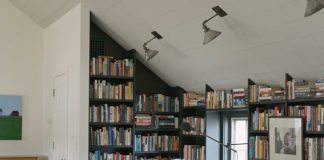
Look at a flyer from your local home renovation store and you are guaranteed to find weekly specials on laminate flooring. Laminate looks like hardwood, but costs much less, which begs the question: Is laminate really a good alternative to hardwood?
When examining your flooring options, there are some basic facts that you must consider first, including the volume of traffic and the potential for moisture problems. You may also want to think about what this investment means to the resale value of your home. Equipped with this information, you can then begin to weigh your options.
Hardwood and Laminate Defined
Traditional hardwood is exactly that – solid hardwood throughout. The biggest knocks against hardwood have always been its price and its susceptibility to moisture. But with the advent of engineered hardwood floors, there are more options for homeowners who want a real wood floor. Engineered hardwood is made of cross-laminated layers of wood with a hardwood veneer surface.
Laminate flooring is actually a picture of wood attached to composite fiberboard, under a clear finish of melamine. It is considerably less expensive than hardwood and has more options for installation, including some that do not require glue.
Hardwood vs. Laminate: The Day to Day
- Moisture: Hardwood is affected by changes in humidity and is not recommended for bathrooms, kitchens, or below grade. Engineered hardwood requires a moisture barrier to be laid down first, but with this layer in place, it is suitable for all rooms, above and below grade. Many laminate floors are water-resistant, but you should check the warranty to be sure what is and is not covered.
- Installation: The installation of hardwood floors is fairly difficult and not usually recommended as a do-it-yourself project. Laminate floors are installed as floating floors. The planks can be glued together, pre-glued, or clicked and locked together. The ease of installation of laminates makes them a good choice for those wanting to install their floor themselves. Like laminates, engineered hardwood is much easier to install than traditional hardwood. Both laminates and engineered hardwood require a layer of padding to reduce noise when walking.
- Durability: Hardwood floors do tend to dent and scratch more than laminate floors. They can also fade if they are in areas with a lot of sunlight. On the plus side, traditional hardwood can be refinished. Depending on the type of veneer, engineered hardwood can sometimes be refinished, but usually not more than once. Laminate floors are very resistant to scratches and dents, but can be chipped. Once damaged, they cannot be easily repaired. If there is significant damage, you may find yourself replacing the entire floor. Laminates do not fade in sunlight and are stain-resistant.
- Longevity: A well-maintained hardwood floor can last a lifetime, and floating engineered hardwood floors can last anywhere between 40 and 80 years. On the other hand, a laminate floor is estimated to last up to 20 years.
- Aesthetics: Because laminate is an image of wood, to some people the aesthetic value is less than that of real wood. With real wood, there are tremendous variations in the wood grain, whereas the same pattern is repeated every five boards in a laminate floor.
Hardwood vs. Laminate: The Bottom Line
Ultimately, you must consider your budget and long-term needs when deciding between these two popular flooring choices. Hardwood costs more to purchase and install, but lasts longer and offers greater resale value to a home. Laminate is cheaper, easier to install and does provide considerable durability, if not the same longevity as hardwood.






































